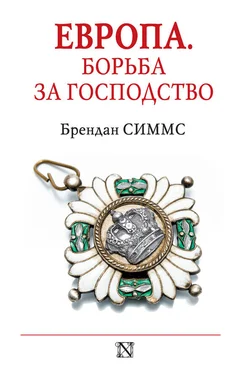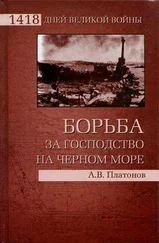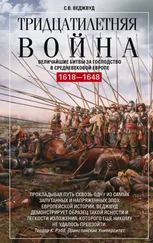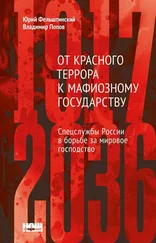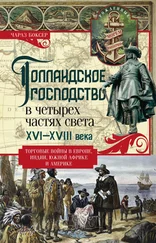Adam Hochschild, Bury the chains. The first international human rights movement (London and New York, 2005), p. 137, and William Hague, William Wilberforce. The life of the great anti-slave trade campaigner (London, 2007), pp. 149–50.
Цветному населению ( фр .) . Примеч. ред.
Jeremy Popkin, You are all free. The Haitian Revolution and the abolition of slavery (Cambridge, 2010), p. 276. See also John Thornton, ‘“I am the subject of the King of Congo”: African political ideology and the Haitian Revolution’, Journal of World History, 4, 2 (1993), pp. 181–214, especially p. 183.
Историческое герцогство в долине Рейна, по обоим берегам реки Рур . Примеч. ред.
Michael Hochedlinger, ‘“La cause de tous les maux de la France”. Die “Austrophobie” im revolutionären Frankreich und der Sturz des Königtums, 1789–1792’, Francia, 24 (1997), pp. 73–120.
Eckhard Buddruss, Die französische Deutschlandpolitik, 1756–1789 (Mainz, 1995).
Quotations in Savage, ‘The French Revolution and the secret du roi’ , p. 211.
Sidney Seymour Biro, The German policy of Revolutionary France. A study in French diplomacy during the War of the First Coalition, 1792–1797, 2 vols. (Cambridge, Mass., 1957).
The Padua Circular and Declaration of Pillnitz are printed in Hall Stewart (ed.), Documentary survey, pp. 221–4.
Quoted in Patricia Chastain Howe, Foreign Policy and the French Revolution. Charles-François Dumouriez, Pierre LeBrun, and the Belgian Plan, 1789–1793 (Basingstoke, 2008), p. 47.
Quoted in Whiteman, Reform, revolution and French global policy, p. 130.
Linda and Marsha Frey, ‘“The reign of the charlatans is over”. The French Revolutionary attack on diplomatic practice’, Journal of Modern History, 65, 4 (1993), pp. 706–44, especially pp. 714–17.
The Brunswick Manifesto, 25.7.1792, in Hall Stewart (ed.), Documentary survey, pp. 307–8.
Munro Price, The fall of the French monarchy. Louis XVI, Marie Antoinette and the Baron de Breteuil (London, 2002).
Declaration of the National Assembly, in Hall Stewart (ed.), Documentary survey, p. 285.
Decree of Fraternity and Help to Foreign Peoples, 19.11.1792, in Hall Stewart (ed.), Documentary survey, p. 381.
Quoted in T. C. W. Blanning, The French Revolution in Germany. Occupation and resistance in the Rhineland, 1792–1802 (Oxford, 1983), p. 64.
Erwin Oberländer, ‘“Ist die Kaiserin von Russland Garant des Westfälischen Friedens?” Der Kurfürst von Trier, die Französische Revolution und Katharina II. 1789–1792, Jahrbücher für Geschichte Osteuropas, New Series, 35 (1987), pp. 218–31.
Jerzy Lukowski, Liberty’s folly. The Polish – Lithuanian Commonwealth in the eighteenth century, 1697–1795 (London and New York, 1991), p. 265.
David Pickus, Dying with an enlightening fall. Poland in the eyes of German intellectuals, 1764–1800 (Lanham etc., 2001), pp. 36–45, 54–9 and 126–31 (quotation pp. 126–7).
Moser’s warning is quoted in Burgdorf, Reichskonstitution und Nation, p. 343.
Thomas Hippler, Citizens, soldiers and national armies. Military service in France and Germany, 1789–1830 (London and New York, 2008).
Quoted in Reynald Secher, A French genocide. The Vendée (Notre Dame, Ind., 2003), pp. 250–51.
Quoted in Richard Whatmore, ‘“A gigantic manliness”. Paine’s republicanism in the 1790s’, in Stefan Collini, Richard Whatmore and Brian Young (eds.), Economy, polity and society. British intellectual history, 1750–1950 (Cambridge, 2000), p. 150. For the strategic context of Paine’s thought see pp. 136, 138–40, 149 and passim.
Decree of 15.12.1792, in Hall Stewart (ed.), Documentary survey, p. 383.
David A. Bell, The first total war. Napoleon’s Europe and the birth of modern warfare (London, 2007).
Quoted in Howe, Foreign policy and the French Revolution, pp. 119 and 151.
Quoted in Jörg Ulbert, ‘France and German dualism, 1756–1871’, in Carine Germond and Henning Türk (eds.), A history of Franco-German relations in Europe. From ‘hereditary enemies’ to partners (Basingstoke, 2008), pp. 41–2.
Quoted in Biro, German policy of Revolutionary France, Vol. II, p. 624.
T. C. W. Blanning, Reform and revolution in Mainz, 1743–1803 (Cambridge, 1974).
Monika Neugebauer-Wölk, Revolution und Constitution. Die Brüder Cotta. Eine biographische Studie zum Zeitalter der Französischen Revolution und des Vormärz (Berlin, 1989), especially pp. 141–3.
Blanning, Reform and revolution in Mainz.
The quotations of Duke Frederick and the Bavarian envoy are in Simms, Struggle for mastery in Germany, pp. 60–61.
The Senckenberg quotation is in Burgdorf, Reichskonstitution und Nation, p. 411.
Букв. «всеобщее вооружение народа» ( нем .) . Примеч. ред.
Букв. «массовое вооружение» ( фр .), всеобщая воинская повинность . Примеч. ред.
Пример авторского анахронизма: переворот 18 фрюктидора был поддержан Наполеоном, но до единоличной власти (переворот 18 брюмера) оставалось еще два года . Примеч. ред.
Philip Dwyer, Napoleon. The path to power, 1769–1799 (London, 2007), passim.
Quoted in Blanning, ‘Frederick the Great’, in Simms and Urbach (eds.), Die Rückkehr der ‘Grossen Männer’, p. 23.
Philip G. Dwyer (ed.), ‘Napoleon and the drive for glory: reflections on the making of French foreign policy’, in Philip G. Dwyer (ed.), Napoleon and Europe (London, 2001), p. 129.
Javier Cuenca Esteban, ‘The British balance of payments, 1772–1820: India transfers and war finance’, Economic History Review, 54, 1 (2001), pp. 58–86, especially pp. 58 and 65–6.
Quoted in Gunther E. Rothenberg, ‘The origins, causes, and extension of the wars of the French Revolution and Napoleon’, Journal of Interdisciplinary History, 18 (1988), p. 789.
Daniela Neri, ‘Frankreichs Reichspolitik auf dem Rastatter Kongress (1797–1799)’, Francia, 24 (1997), pp. 137–57, especially pp. 155–6.
Читать дальше
Конец ознакомительного отрывка
Купить книгу
